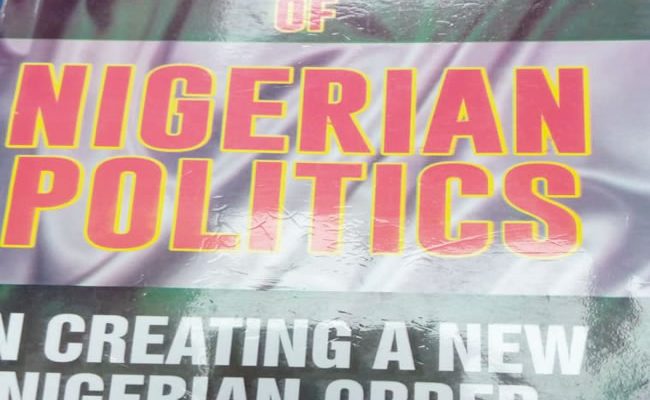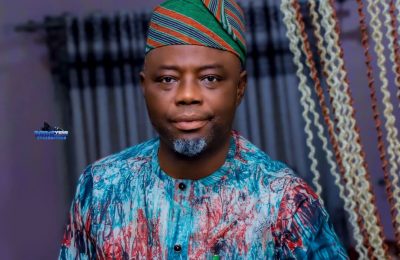

A review of Stephen Okeke’s book, ‘The Psychology of Nigerian Politics in Creating a New Nigerian Order,’ by Chukwuemeka Munachiso.
AN average Nigerian believes without equivocation that the problem of the country is leadership and the quality of leadership so far exhibited for years by those fortunate enough to find themselves in the corridors of power but the author of the book under review believes otherwise.

According to him, politicians are not the problem of the country but the people themselves. Politicians, as he puts it only piggyback on what the people make available; what they tolerate, and what they can let political entrepreneurs get away with. He believes fervently that when the people, the electorate stand up, the politicians will definitely have no option but to stand down.
Divided into seven distinctive chapters, the 122-page book published by Crossing Sign Publishers, Belize City, Belize, is a political foray into the myriads of problems bedeviling the country politically; the inactions of the people in holding their leaders accountable and the consequences of docility of the masses on economy and other indices of national development.
On the dynamics that influence political decision and interrelationships, the author believes that the people do not have to be confrontational to be effective noting that violent confrontation of the political establishment, administrative enterprise, and political entrepreneur plays more to the advantage of politicians than it resolves any national problem. He noted that many politicians come into power, not by intelligence but by drama submitting that confrontation amounts to playing in their pen. He suggested that the best approach is through intelligent engagement of the political class because intelligent engagement yokes politicians with the inescapable knowledge that the people are thinking and watching.
He advocates a paradigm shift in the participation of the people in the administration of the country which will not happen unless they drop the idea of being politically naïve and socially unsophisticated.
The world sees Nigeria through the prism of corruption and believes that Nigerians are a bunch of corrupt specie of Homo sapiens, but the author who by virtue of being a researcher of international repute and widely travelled sees Nigeria as a less corrupt country considering the amount of sleaze going on among western countries. According to him, one Western crook can steal more than all African crooks and politicians put together can ever steal. But the western thief is addressed in colorful language and approached with respectful observance. The African is denigrated and subjugated. Africans are made to believe that for the same crime they are worse than anybody else. They are made to believe and even help to propagate that for some social ****, they are not only bad while doing their best to solve them, but are actually the epitome of failure and the face of evil.
On steps to effective participation in true democracy, the book states that citizens must take personal responsibilities for the administration of their small circle; support the duly and legitimately elected government after an election is over and the ballots are retired; understand partisan political language and dialect with a view not to engage politically-elected government using the language of the opposition. The book encourages citizens or the electorate to stand up before they engage the process knowing full well that social mobilisation is an act of maintaining democratic freedom and sanity.
The author, as a political scientist, counsels the electorate to form pressure groups with clearly set goals and targets but not to fall to the use of confrontational approach adding that politicians hate engagement, consistency and persistence because these routes create followership and awareness. He warns members of any pressure group to look out for political elements who may want to be part of the pressure groups as it gains credibility in order to kill the cause from inside.
On the consequences of Christian leaders discouraging political participation, the book noted that when those who claim to hold unto higher moral orders refuse to participate in the management of the country’s collective resources, then those who are at the lower rung of morality will have no other option than to take charge adding that if those who can do right refuse to do so, then those at the other end of the moral barometer will have the privilege to do what they are best at.
Written in a simple, understandable English devoid of political jargons, the book is a must-read for Nigerians, especially at this period when all and sundry appear marooned on the island of helplessness and deep bewilderment.
READ ALSO: How opposition parties can defeat Tinubu in 2027 – Primate Ayodele








